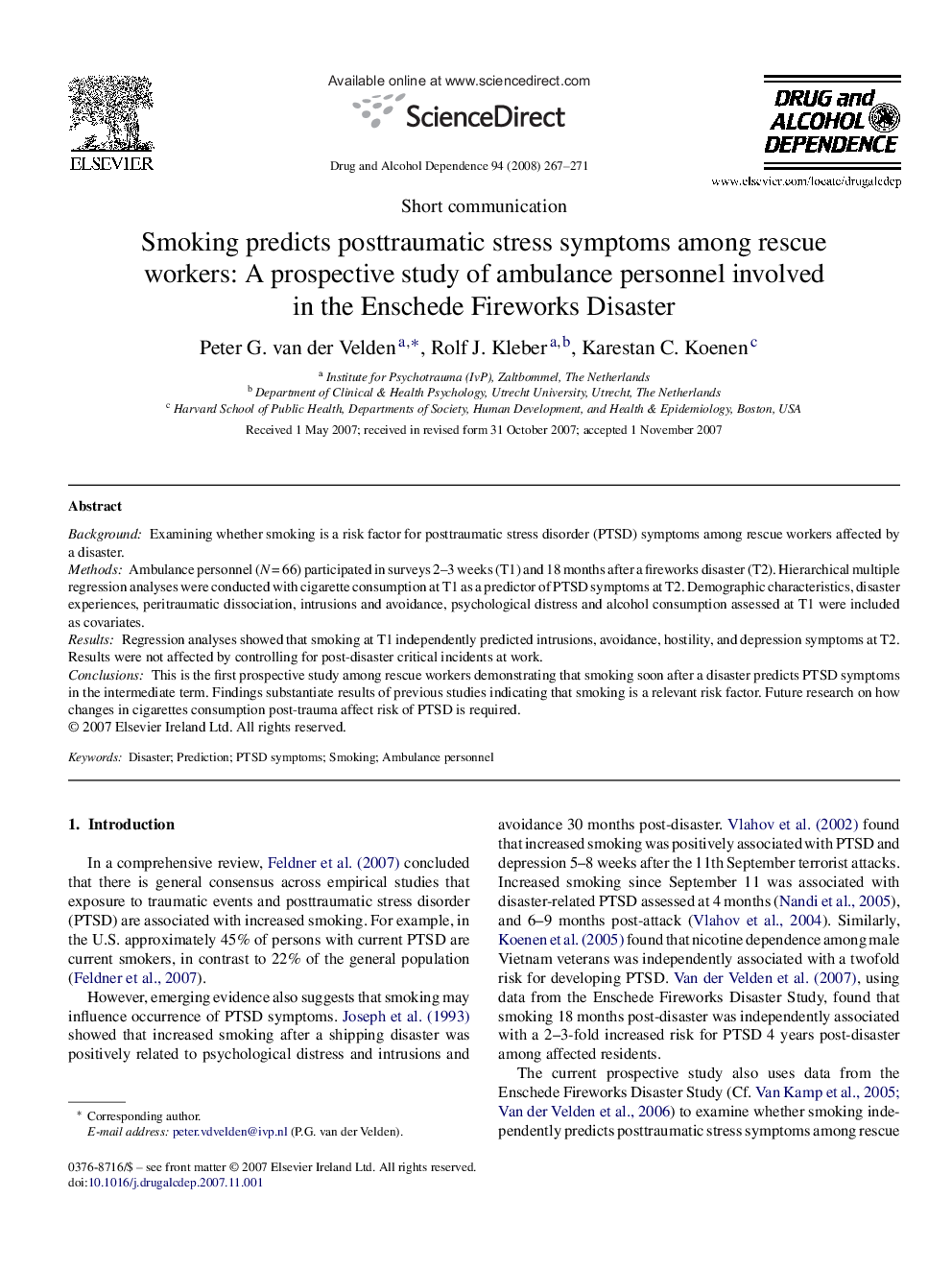| Article ID | Journal | Published Year | Pages | File Type |
|---|---|---|---|---|
| 1071154 | Drug and Alcohol Dependence | 2008 | 5 Pages |
BackgroundExamining whether smoking is a risk factor for posttraumatic stress disorder (PTSD) symptoms among rescue workers affected by a disaster.MethodsAmbulance personnel (N = 66) participated in surveys 2–3 weeks (T1) and 18 months after a fireworks disaster (T2). Hierarchical multiple regression analyses were conducted with cigarette consumption at T1 as a predictor of PTSD symptoms at T2. Demographic characteristics, disaster experiences, peritraumatic dissociation, intrusions and avoidance, psychological distress and alcohol consumption assessed at T1 were included as covariates.ResultsRegression analyses showed that smoking at T1 independently predicted intrusions, avoidance, hostility, and depression symptoms at T2. Results were not affected by controlling for post-disaster critical incidents at work.ConclusionsThis is the first prospective study among rescue workers demonstrating that smoking soon after a disaster predicts PTSD symptoms in the intermediate term. Findings substantiate results of previous studies indicating that smoking is a relevant risk factor. Future research on how changes in cigarettes consumption post-trauma affect risk of PTSD is required.
